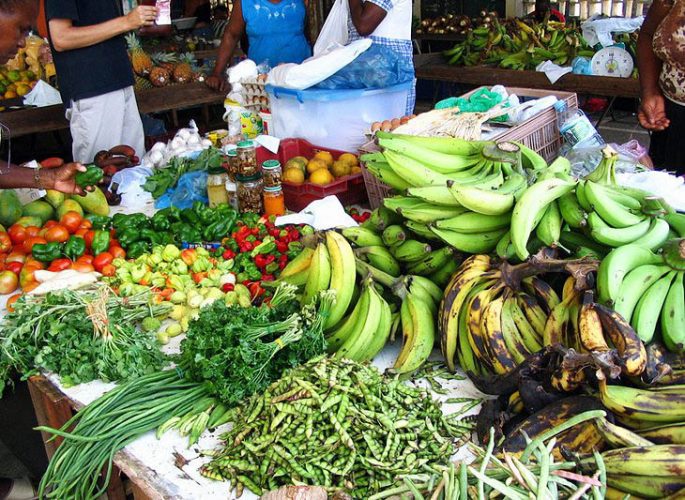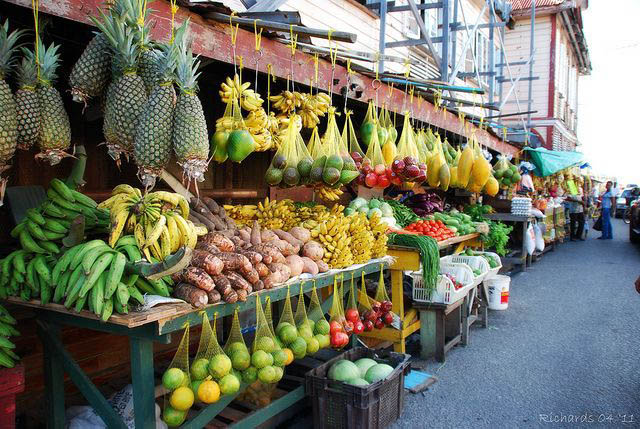The Stabroek Business has already commented on the fact that the local Ministry of Agriculture is yet to make public such plans as it might have for participation in the United Nations-designated International Year of Fruits and Vegetables (IYFV) this year. When last we checked about a week ago we were told that no information on the country’s participation in the IYFV-related activities had become available so far. Two months into the IYFV we believe that a participation plan ought, by now, to have been available. We make this point not just from the standpoint of a local fruit and vegetable cultivation sub-sector that makes equally important contributions to local employment and to nutritional standards but also to helping to feed parts of the rest of the Caribbean and further afield.

By now, the Ministry of Agriculture and the various other state and non-state agencies that are concerned with the agriculture and agro-processing sector ought to have been collaborating with local farmers and agro- processors to roll out an IYFV programme concerned with growing the sub-sectors, expanding export capacity, and using IYFV to drive a campaign to encourage higher levels of consumption of fruit and vegetables and their by-products.
Both here in Guyana and in the rest of the region, there sometimes appears to be a lack of sensitivity to the importance of our home-grown fruit and vegetables both as important nutritional supplements and as critical money-earners. Examination of our local supermarkets, particularly those deemed to be the ‘up market’ ones will reveal, in many instances, greater volumes of a wider variety of imported fruit than local fruit on display for sale. There can be no doubt that this is true to a large extent in other Caribbean territories where tourist tastes determine, to a great extent, what is available in the shops. This, in circumstances where Guyana, and to a lesser extent, other territories in the region produce fruit and vegetables on a scale that is a least sufficient to meet the needs of local consumption levels.
It is believed that should some countries in the Caribbean replace a mere 10% of its fruit and vegetable imports with local produce, they could, conservatively, save at least US$33.3 million annually. Indeed, it is generally felt that the regional fruit and vegetable sector provides the greatest opportunities for foreign exchange savings and other economic benefits, if tackled within the framework of import substitution. Regional nutritionists have weighed in on the subject of import substitution contending that not only would this help promote food and nutrition security but that it would also have positive health impacts. Employment levels in the region are also likely to be impacted since an estimated 10% import substitution of fruit and vegetables could create at least 67,000 rural jobs, support rural communities and help revive the agriculture sector in some territories.
It will be recalled that just over a year ago the proceedings of the 31st International Sessional Meeting in Barbados concluded on February 20, 2021 with an agreement among CARICOM Heads that they would work collectively to cut the region’s estimated US$5 billion food import bill by 25% in the succeeding five years. With the region becoming increasingly dependent on tourism and with tourist tastes accounting for a sizeable share of food imports the jury remains out on whether that target will be realised.
The scale for the regional food imports challenge would appear to vary from one territory to the next. A 10% food import substitution will reportedly benefit Trinidad and Tobago most significantly, the two CARICOM countries being amongst the largest extra regional food importers in the region.
It is not that an effort has not been made. Some countries in the region have begun to incorporate import substitution strategies into their development paradigms. Over the past two years, The Bahamas placed import bans on bell peppers and tomatoes in order to allow local supply to meet local demand. Last year, St. Lucia entered into a partnership with Taiwan to support an agricultural initiative in the Caribbean aimed at realising self-sufficiency in key agricultural commodities. Both St. Lucia and Barbados have been commended for their efforts at import substitution in the agricultural sector.
Amongst Caribbean Community countries, Guyana, it is felt, possesses the greatest potential to lead the charge for significantly reducing the level of fruit and vegetable imports from outside the region. Over time, however, attempts at intra-regional collaboration to strengthen the agricultural sector, spearheaded mostly by Guyana and Trinidad and Tobago have failed to bear meaningful fruit. Here, it is widely felt that the failure in this regard has to do, largely, with the proclivity for prevarication linked to the timely execution of planned projects, one of the most notable recent examples being the failed attempted initiative between Guyana and Trinidad and Tobago more than five years ago that envisaged Trinidadian investors utilising lands in Guyana to create mega-farms that focused on large-scale fruit and vegetable exports to other territories in the region as well as the creation of facilities for agro-processing.
As it happens IYFV coincides with food-related challenges confronting the Caribbean arising not only out of COVID-19-related labour displacement in the sector, but also out of scarcity of agricultural produce and rising prices. Contextually, this provides the region, Guyana included, with more than ample motive to enjoin the IYFV in a global environment where the pressures arising out of the prevailing circumstances are likely to create a mood in which a collectively challenged international community may well be readier than it has been previously to move fruits and vegetables and agriculture as a whole, much higher on the scale of global development-related priorities.






